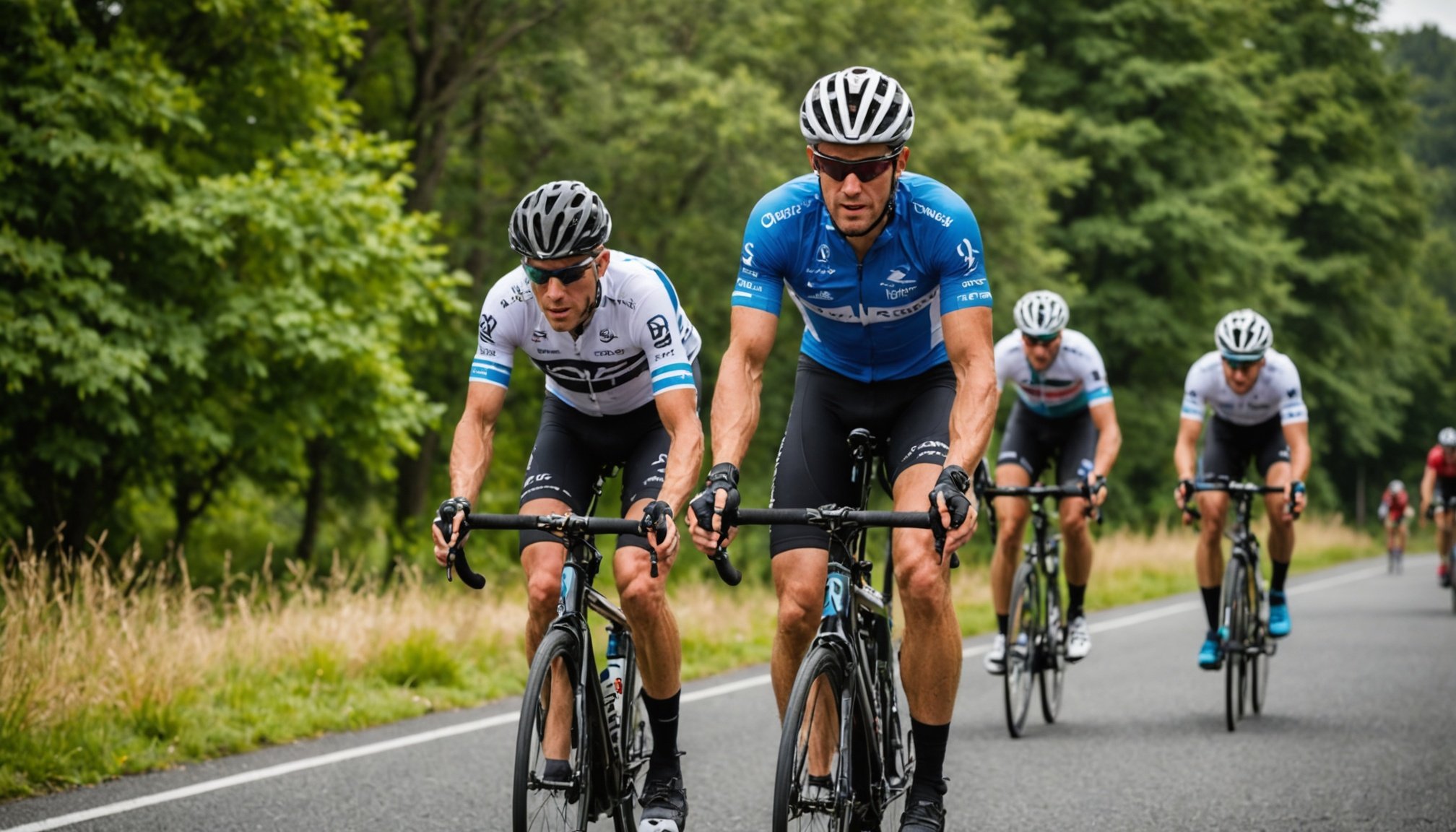Understanding Mental Resilience in Multi-Stage Races
In multi-stage races, mental resilience is a critical attribute that can significantly determine a cyclist’s success. This resilience is the ability to maintain a strong mental state, even when faced with adversity and stress throughout the race. For cyclists, this can mean the difference between persevering to the finish line or succumbing to the hardships of the competition.
During these demanding races, cyclists encounter several psychological challenges. Fatigue, the monotony of long distances, and relentless competition can sap mental strength. Additionally, unexpected events such as adverse weather, equipment failure, or sudden health issues can impose further stress. These challenges can disrupt focus and motivation, testing a cyclist’s mental resilience at every stage.
Also to discover : Unleash your fun: explore our exciting orbi guns collection!
The impact of mental resilience is profound on both performance and well-being. On one hand, a resilient mindset allows cyclists to push beyond physical limits, maintain pace, and strategically navigate the racecourse. On the other, it aids in preserving mental health by reducing anxiety and promoting a positive outlook. Supporting mental resilience involves strategies like setting realistic goals, maintaining a flexible mindset, and engaging in regular mental training regimes, which altogether enhance the cyclist’s performance and psychological stamina.
Psychological Support Strategies for Cyclists
Enhancing mental toughness is crucial for cyclists to achieve peak performance. Sports psychology and mental training play a vital role in equipping athletes with psychological support to face challenges confidently.
Also to read : Discover the best tactical bags for every gel gun enthusiast
Techniques for Building Mental Strength
Visualisation techniques are fundamental for performance improvement. Cyclists can mentally rehearse specific strategies or see themselves succeed, thereby boosting confidence. Cognitive-behavioral strategies are effective in overcoming negative thoughts, enabling athletes to counter self-doubt with positive affirmations. Furthermore, mindfulness practices, such as focused breathing, support sustained concentration during long competitions.
Preparing for Competitive Pressure
Simulation of race conditions allows cyclists to acclimate to competitive pressure, improving mental readiness. Additionally, goal setting offers a roadmap, guiding athletes through performance planning, while establishing a support network provides emotional and motivational backing.
Coping with Fatigue and Stress
Effective relaxation techniques are essential for managing stress. Practices such as progressive muscle relaxation help cyclists remain calm and focused. Maintaining motivation during long races requires intrinsic rewards and pacing strategies, ensuring athletes stay engaged. Recognising and addressing signs of burnout promptly is equally important, fostering recovery and protecting mental wellbeing.
These strategies collectively nurture resilience, preparing cyclists for both the physical and mental demands of their sport.
Case Studies and Testimonials
For many experienced cyclists, mental resilience is a critical component of success. Real-life case studies highlight strategies that have been instrumental in enhancing mental toughness.
One compelling account comes from a seasoned cyclist who navigated a grueling race by employing visualization techniques. This method proved effective in maintaining focus and boosting confidence. Visualization serves as a powerful tool in the mental arsenal of athletes, enabling them to mentally rehearse successful outcomes and cultivate a positive mindset.
Furthermore, insights from sports psychologists underscore the effectiveness of structured mental resilience practices. For instance, incorporating mindfulness exercises into daily routines can significantly improve focus and reduce performance anxiety. Experienced practitioners often suggest that consistent mental training is just as crucial as physical preparation.
Testimonials from these cyclists emphasize the importance of psychological support during competitive events. In high-stress situations, having a supportive team or mentor can make a substantial difference. Personal stories reveal that encouragement and guidance help reinforce resilience, especially when faced with unexpected challenges.
Ultimately, these examples underscore the practicality and transformative potential of mental resilience strategies for cyclists. They highlight how anyone, with dedication and structured training, can enhance their psychological fortitude.
Expert Advice from Sports Psychologists
Embracing insights from sports psychologists can substantially boost athletes’ mental resilience, a critical component of performance enhancement. Experts recommend integrating mental training into regular practice to build psychological strength.
Integrating Mental Training into Regular Practice
Incorporating mental skills into daily routines requires strategic scheduling. Sports psychologists advise athletes to dedicate specific time slots for mental exercises, much like physical training. These sessions can include visualization techniques, goal setting, and mindfulness practices.
Combining mental skills with physical training is another recommended approach. For example, athletes might practice concentration and visualization drills during warm-ups or cool-downs. This holistic method ensures that mental resilience becomes a natural part of the training process.
Assessing progress is crucial for refining strategies. Athletes and coaches should regularly evaluate mental training effectiveness, adjusting exercises to match performance needs. This adaptive strategy helps maintain focus and drive as athletic demands evolve.
Research on Mental Resilience in Sports
Sports psychology research consistently links mental resilience to enhanced performance outcomes. Studies highlight that endurance events significantly benefit from psychological support, reducing fatigue and improving overall performance. Findings underscore the importance of mental resilience in sustaining high levels of endurance over extended periods. These insights empower coaches and athletes to refine training techniques, effectively incorporating mental conditioning to complement physical prowess.
Tips for Coaches and Support Teams
Coaches play a crucial role in fostering mental resilience among athletes. By emphasising emotional strength, athletes can better manage stress during competitions and training. One effective approach is integrating mental resilience exercises into regular training strategies. Techniques such as visualisation and positive self-talk can be incorporated to boost confidence and focus.
Building a supportive environment is essential for athletes’ well-being. One strategy is creating open communication channels, enabling athletes to voice concerns and receive constructive feedback. Support teams should regularly engage with athletes, promoting a culture that prioritises both mental and physical health.
Communication within mental support systems cannot be understated. Clear and consistent feedback helps athletes understand their progress and areas needing improvement. Encouraging athletes to set achievable goals, while providing them with tools and resources, can significantly impact their performance and persistence.
Support teams can further enhance resilience by organising workshops and training sessions focusing on mental health awareness. These initiatives inform and equip athletes with skills to manage anxiety, ultimately improving their overall performance. By addressing mental challenges early, coaches and support teams can ensure athletes maintain a healthy balance between training and mental health.











